Humans
Sign up for our newsletter
We summarize the week's scientific breakthroughs every Thursday.
-
 Anthropology
AnthropologySpiritual convictions and group identities inspire terrorist acts, study finds
Sacred values and becoming one with comrades fuels terrorist acts, a report finds.
By Bruce Bower -
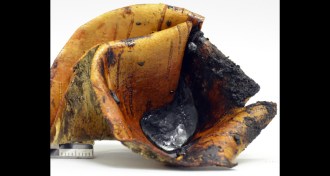 Anthropology
AnthropologyFiery re-creations show how Neandertals could have easily made tar
Neandertals could have made tar with simple methods and materials on hand, new experiments show.
By Bruce Bower -
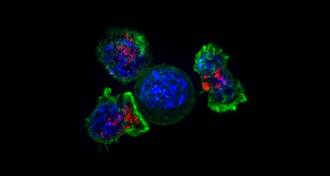 Health & Medicine
Health & MedicineFDA approves gene therapy to treat a rare cancer
The Food and Drug Administration has approved Kymriah to treat a rare cancer. It’s the first-ever gene therapy approved in the United States.
-
 Genetics
GeneticsMuscle pain in people on statins may have a genetic link
Many people stop taking cholesterol drugs because of aches, but it has been unclear if the drugs are at fault.
-
 Health & Medicine
Health & MedicineHow gut bacteria may affect anxiety
Microbes may tamper with the production of tiny molecules in brain regions that help control anxiety.
-
 Archaeology
ArchaeologyAncient mud documents the legacy of Rome’s lead pipes
Researchers used lead levels in Rome’s ancient harbors to track lead pipe use and urbanization.
-
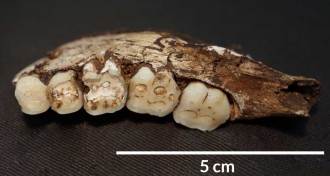 Anthropology
AnthropologyNitty-gritty of Homo naledi’s diet revealed in its teeth
Ancient humanlike species ate something that damaged its teeth.
By Bruce Bower -
 Health & Medicine
Health & MedicineSeeing one picture at a time helps kids learn words from books
A small study found that children were better able to pick up vocabulary from books that show only one picture at a time.
-
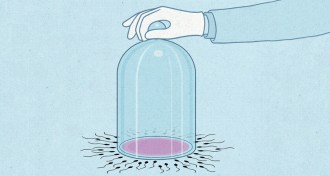 Health & Medicine
Health & MedicineBirth control research is moving beyond the pill
After decades of research, reproductive biologists are on the verge of developing new birth control options that stop sperm from maturing or save a woman's eggs for later.
-
 Anthropology
AnthropologySome secrets of China’s terra-cotta army are baked in the clay
Specialized production system lay behind the famous terra-cotta troops found in ancient Chinese emperor’s tomb.
By Bruce Bower -
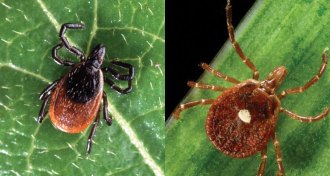 Health & Medicine
Health & MedicineA new tool could one day improve Lyme disease diagnosis
There soon could be a way to differentiate between Lyme disease and a similar tick-associated illness.
-
 Health & Medicine
Health & MedicineProtect little ones’ eyes from the sun during the eclipse
Pay attention to eye safety for kids during the solar eclipse.